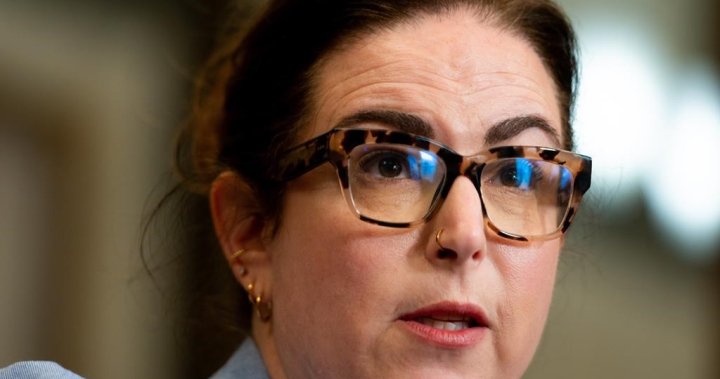Federal Addictions Minister Ya’ara Saks recently rejected Toronto Public Health’s proposal to decriminalize the possession of illegal drugs due to a lack of limits and safeguards within the plan. The minister expressed concerns about the proposal not including age restrictions or limits on the amount of drugs a person could possess. She had initially stated that the application was dormant but later denied it after facing pressure to abandon the policy. Saks received word in May that Toronto would not make changes to address the concerns raised by officials, leading to the rejection of the proposal.
The city of Toronto first submitted its decriminalization request in January 2022 and updated it in 2023. Toronto Public Health’s application sought to decriminalize personal possession of all controlled drugs and substances without setting limits on the amount that could be possessed. The lack of age restrictions and thresholds for personal use, as well as the absence of support from the Ontario government, contributed to the rejection of the proposal. Saks highlighted the importance of having limits on possession for personal use, as opposed to trafficking, which would fall under enforcement measures. The rejection of Toronto’s proposal came after Prime Minister Justin Trudeau dismissed it as dormant and not active.
In contrast to Toronto’s rejected proposal, British Columbia had implemented a similar pilot project to decriminalize certain illegal substances such as heroin, fentanyl, cocaine, and methamphetamine. The pilot project was aimed at combatting the toxic drug supply and overdose crisis by destigmatizing drug use. However, the provincial NDP government in British Columbia later requested the recriminalization of drug use in public spaces due to concerns from law enforcement, healthcare professionals, and public backlash. This request led to scaling back the pilot project in the province. Saks emphasized that the Toronto proposal could not be compared to the model used in British Columbia, where there were age limits and only specific drugs were decriminalized.
The rejection of Toronto’s decriminalization proposal was announced on May 17, citing concerns about the proposal’s lack of adequate public health protection and support from the Ontario government. Premier Doug Ford and his ministers had opposed Toronto’s application, leading to further challenges in gaining approval for the policy. Saks pointed out that the lack of confidence in Toronto’s proposal, particularly in relation to young people, was a key factor in the decision to reject it. The rejection of the proposal came after weeks of political pressure and confusion surrounding the status of the application, with officials having heard nothing from Toronto Public Health for months before being informed in May that the proposal would not be amended.
The rejection of Toronto’s decriminalization proposal highlights the complexities and challenges of implementing policies to address drug use and addiction in Canada. The differing approaches taken in provinces like British Columbia demonstrate the need for clear guidelines and safeguards when considering decriminalization measures. The decision to reject Toronto’s proposal underscores the importance of addressing public health concerns and maintaining public safety while exploring ways to destigmatize drug use and combat the overdose crisis. Moving forward, it will be crucial for policymakers to engage with stakeholders, consider evidence-based approaches, and prioritize the well-being of individuals affected by substance use disorders in order to develop effective and comprehensive strategies to address addiction in Canada.


